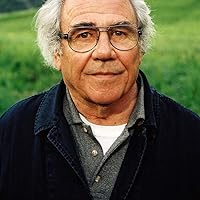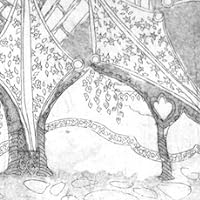Tsunami Quotes
Quotes tagged as "tsunami"
Showing 1-30 of 35

“He [Riptide] sighed. "I said, 'What are you doing all the way out here?' and you said, 'Hey, sparkling teeth, I totally love three of your claws but not the others, and I wish your nose was a herrig so I could eat it, and also your wings sound like sharks snoring.'"
Tsunami burst out laughing.”
― The Lost Heir
Tsunami burst out laughing.”
― The Lost Heir
“When they (the men, the scavengers)
come for you, do not give yourself
to them so easily.
Wear your strength like armour,
fight like a beast.
Do not let them tell you that
you belong to them.
Be fearless.
Be a lion.
Be like lava.
Rip them apart,
and burn their bones.
And when you are done,
tell the world that
you belong to no man.
That you are a lady,
a warrior,
a tsunami,
and you belong only to yourself.”
― The Sky Is Purple
come for you, do not give yourself
to them so easily.
Wear your strength like armour,
fight like a beast.
Do not let them tell you that
you belong to them.
Be fearless.
Be a lion.
Be like lava.
Rip them apart,
and burn their bones.
And when you are done,
tell the world that
you belong to no man.
That you are a lady,
a warrior,
a tsunami,
and you belong only to yourself.”
― The Sky Is Purple

“What struck me, in reading the reports from Sri Lanka, was the mild disgrace of belonging to our imperfectly evolved species in the first place. People who had just seen their neighbors swept away would tell the reporters that they knew a judgment had been coming, because the Christians had used alcohol and meat at Christmas or because ... well, yet again you can fill in the blanks for yourself. It was interesting, though, to notice that the Buddhists were often the worst. Contentedly patting an image of the chubby lord on her fencepost, a woman told the New York Times that those who were not similarly protected had been erased, while her house was still standing. There were enough such comments, almost identically phrased, to make it seem certain that the Buddhist authorities had been promulgating this consoling and insane and nasty view. That would not surprise me.”
―
―

“A wave formed, swelling around Ariel's body. It lifted her up higher and higher- or maybe she herself was growing: it was hard to tell. She held the trident aloft. Storm clouds raced to her from all directions like a lost school of cichlid babies flicking to their father's mouth for protection. Lightning coursed through the sky and danced between the trident's tines.
Ariel sang a song of rage.
Notes rose and fell discordantly, her voice screeching at times like a banshee from the far north.
She sang, and the wind sang with her. It whipped her hair out of its braids and pulled tresses into tentacles that billowed around her head. She sang of the unfairness of Eric's fate and her own, of her father's torture as a polyp, even of Scuttle's mortal life, slowly but visibly slipping away.
Mostly she sang about Ursula.
She sang about everyone whose lives had been touched and destroyed by evil like coral being killed and bleached, like dead spots in the ocean from algae blooms, like scale rot. She sang about what she would do to anyone who threatened those she loved and protected.
And then, with her final note, she made a quick thrust as if to throw the trident toward the boats in the bay, pulling it back at the last moment.
A clap louder than thunder echoed across the ocean. A wave even larger than the one she rode roared up from the depths of the open sea. It smashed through and around her, leaving her hair and body white with foam. She grinned fiercely at the power of the moment. The tsunami continued on, making straight for Tirulia.
But... despite her rage... underneath it all the queen was still Ariel. Her momentary urge to destroy everything came and went like a single flash of summer lightning.”
― Part of Your World
Ariel sang a song of rage.
Notes rose and fell discordantly, her voice screeching at times like a banshee from the far north.
She sang, and the wind sang with her. It whipped her hair out of its braids and pulled tresses into tentacles that billowed around her head. She sang of the unfairness of Eric's fate and her own, of her father's torture as a polyp, even of Scuttle's mortal life, slowly but visibly slipping away.
Mostly she sang about Ursula.
She sang about everyone whose lives had been touched and destroyed by evil like coral being killed and bleached, like dead spots in the ocean from algae blooms, like scale rot. She sang about what she would do to anyone who threatened those she loved and protected.
And then, with her final note, she made a quick thrust as if to throw the trident toward the boats in the bay, pulling it back at the last moment.
A clap louder than thunder echoed across the ocean. A wave even larger than the one she rode roared up from the depths of the open sea. It smashed through and around her, leaving her hair and body white with foam. She grinned fiercely at the power of the moment. The tsunami continued on, making straight for Tirulia.
But... despite her rage... underneath it all the queen was still Ariel. Her momentary urge to destroy everything came and went like a single flash of summer lightning.”
― Part of Your World

“Most of the parents who came to the school were full-time mothers and housewives; most of the villagers offering their opinions were retired, elderly and male. It was another enactment of the ancient dialogue, its lines written centuries ago, between the entreating voices of women, and the oblivious, overbearing dismissiveness of old men.”
― Ghosts of the Tsunami: Death and Life in Japan's Disaster Zone
― Ghosts of the Tsunami: Death and Life in Japan's Disaster Zone

“Tak akan sempat nisan terpahat;
ribuan nama memesan bersama-sama.
Sementara,
mayat-mayat yang belum berangkat,
terbaring berselimut puing-puing...
O, Tsunami,
airmu bermuara di mata kami!”
― Nocturnal Journal
ribuan nama memesan bersama-sama.
Sementara,
mayat-mayat yang belum berangkat,
terbaring berselimut puing-puing...
O, Tsunami,
airmu bermuara di mata kami!”
― Nocturnal Journal

“Then he heard a distant rumble - louder than thunder. Looking out to sea, Sawat saw a grey wall of water, the width of the horizon, tumbling at high speed towards the shoreline.”
― Kinnara
― Kinnara

“We always say live for today and don't waste time worrying about tomorrow. But what keeps us up at night is knowing that tomorrow is roaring down on us like a tsunami, and a lot of us don't know how to swim.”
― Ambush
― Ambush

“These old Australians or Californians who spend all their days staring at the ocean without leaving their limousines, which they have turned into their panoramic childhood sites and their coffins, and who dream there, while awaiting the last wave, the one that will come from the depths of the ocean to engulf them.”
― Cool Memories
― Cool Memories

“The true mystery of Okawa school was the one we all face. No mind can encompass it; consciousness recoils in panic. The idea of conspiracy is what we supply to make sense of what will never be sensible— the fiery fact of death. Extinction of life: extinction of a perfect, a beloved child: for eternity. Impossible! the soul cries out. What are they hiding?”
― Ghosts of the Tsunami: Death and Life in Japan's Disaster Zone
― Ghosts of the Tsunami: Death and Life in Japan's Disaster Zone

“The pandemic has created a new wave of homelessness and we are not prepared for the consequences of this looming tsunami.”
―
―

“Sophisticated human beings were on hand to see this volcano's convulsions, they were able to investigate the event, and they were able to attempt to understand the processes that had caused such dreadful violence...their observations, painstaking and precise as science demanded, collided head-on with a most discomfiting reality: that while in 1883 the world was becoming ever more scientifically advanced, it was in part because of these same advances that its people found themselves in a strangely febrile and delicately balanced condition...”
― Krakatoa: The Day the World Exploded: August 27, 1883
― Krakatoa: The Day the World Exploded: August 27, 1883

“Even the most intense aerial bombing leaves the walls and foundations of burned-out buildings, as well as parks and woods, roads and tracks, fields and cemeteries. The tsunami spared nothing, and achieved feats of surreal juxtaposition that no explosion could match. It plucked forests up by their roots, and scattered them miles inland. It peeled the macadam off the roads, and cast it hither and thither in buckled ribbons. It stripped houses to their foundations, and lifted cars, lorries, ships and corpses onto the top of tall buildings.”
― Ghosts of the Tsunami: Death and Life in Japan's Disaster Zone
― Ghosts of the Tsunami: Death and Life in Japan's Disaster Zone

“Ale lidé si pamatovali příběh svých rodičů, takže když vzedmutý oceán vtrhl do měst, většina z nich stála na kopcích pokrytých sněhem. Stejně jako paní Tabata, tehdy osmiletá dívenka, které dědeček opakoval: Musíš běžet na kopec, i kdyby nikdo jiný neběžel.”
― Ganbare! Warsztaty umierania
― Ganbare! Warsztaty umierania

“Anger mirrors one's extreme feeling, whether in a right or wrong prospect. However, it is a tsunami of one's mind; damage upon all figures.”
―
―

“Imagine the love you feel for your child, and then multiply that by a thousand. Imagine what you felt the first time you gazed upon her, and knew that God had given you the most perfect gift to complete your life, and multiply that again. That is what you are to me. That is what I felt the first moment I saw you. Unlike humans, Breeds live for the small gifts, the little kindnesses fate would hand to us. We search for them. We cherish them. The moment I saw you, the animal inside me roared in triumph, the man melted in the face of the woman who stared back at him.
"That was love, Rachel. It was acceptance, the knowledge that what I feared the most, what I ached for the most, was now standing before me, and reaching out for it, claiming it, could destroy everything I am."
She shook her head desperately. "Love doesn't happen like that. It takes time. It builds."
He nodded slowly. "It can happen like that. It can build slowly. It can come like a gentle rainfall, or it can slam into you like a tsunami. You are my tsunami, love.”
― Lion's Heat
"That was love, Rachel. It was acceptance, the knowledge that what I feared the most, what I ached for the most, was now standing before me, and reaching out for it, claiming it, could destroy everything I am."
She shook her head desperately. "Love doesn't happen like that. It takes time. It builds."
He nodded slowly. "It can happen like that. It can build slowly. It can come like a gentle rainfall, or it can slam into you like a tsunami. You are my tsunami, love.”
― Lion's Heat

“these raindrops make me feel the sky is crying
when the whole world goes up in flames may be she will not have any more tears to cry
rivers are drying up tsunamis come uninvited
acid rain has made inroads of what chemicals
are tears made of why do I cry everytime it rains...”
―
when the whole world goes up in flames may be she will not have any more tears to cry
rivers are drying up tsunamis come uninvited
acid rain has made inroads of what chemicals
are tears made of why do I cry everytime it rains...”
―

“these raindrops make me feel the sky is crying
when the whole world goes up in flames may be she will not have any more tears to cry
rivers are drying up tsunamis come uninvited
acid rain has made inroads of what chemicals
are tears made of why do I cry every time it rains...”
―
when the whole world goes up in flames may be she will not have any more tears to cry
rivers are drying up tsunamis come uninvited
acid rain has made inroads of what chemicals
are tears made of why do I cry every time it rains...”
―

“(At the death of his friend Jiya's entire family, Kino's father comforts him) Yes, he will be happy someday. . . for life is always stronger than death. Jiya will feel when he wakes that he can never be happy again. He will cry and cry and we must let him cry. But he cannot always cry. After a few days he will stop crying all the time. He will cry only part of the time. He will sit sad and quiet. We must allow him to be sad and we must not make him speak. But we will do our work and live as always we do. Then one day he will be hungry and he will eat something that our mother cooks, something special, and he will begin to feel better. He will not cry any more in the daytime but only at night. We must let him cry at night. But all the time his body will be renewing itself. His blood flowing in his veins, his growing bones, his mind beginning to think again, will make him live. . . just as he lived with them alive, he will live with them dead. Someday he will accept their death as part of his life. He will weep no more. He will carry them in his memory and his thoughts. His flesh and blood are part of them. So long as he is alive, they, too, will live in him. The big wave came, but it went away. The sun shines again, birds sing, and earth flowers. Look out over the sea now. . . .”
― The Big Wave
― The Big Wave

“A ten-metre-high underwater wave breaks over us, and another one comes to meet it. The two waves converge and carry us off. We come out alive though, landing up on a hillside among the undergrowth. This nocturnal wave is familiar to me, in one form or another. It comes back to engulf me at regular intervals, though I hadn't seen it for a while (but since there's no sense of time between dreams, it is always as though I had seen it the night before). No wave, no swell is so fine as that black, liquid oceanic wall coming to enshroud me. Its crest is often luminous and meaning has it none. I don't care what I'm told about its meaning, it's the fact of its occurrence which is marvellous.”
― Cool Memories
― Cool Memories

“If you do that, she can ride on my back,” Tsunami suggested. She missed having the little SandWing come lean against her trustingly.”
― The Lost Heir
― The Lost Heir

“This world is filled with a tsunami of people, and only a few would ever feel a connection with each other.”
―
―

“In that same year, tsunamis up the coast had destroyed the rest of those cities he’d only heard about, and the TV was an always-uncomfortable static. All the wreckage, all the ruin, and the ground was brilliant red. Every morning, he would wake to more of the world ending, and the earth laid out a scarlet cloak as though waiting for an emperor to arrive.”
― The Shivering Ground & Other Stories
― The Shivering Ground & Other Stories

“You can live in the dangerous ocean front home, you will find me living up the hill out of the tsunami zone.”
―
―

“All across Japan people have been suffering for a long time. A long time. And the tsunami has revealed our modern problems, and the limitations of how we now care for each other. This is what has happened to our country.”
― Where the Dead Pause, and the Japanese Say Goodbye: A Journey
― Where the Dead Pause, and the Japanese Say Goodbye: A Journey
All Quotes
|
My Quotes
|
Add A Quote
Browse By Tag
- Love Quotes 97.5k
- Life Quotes 76k
- Inspirational Quotes 73k
- Humor Quotes 44k
- Philosophy Quotes 29.5k
- Inspirational Quotes Quotes 27k
- God Quotes 26k
- Truth Quotes 23.5k
- Wisdom Quotes 23.5k
- Romance Quotes 23k
- Poetry Quotes 22k
- Death Quotes 20k
- Happiness Quotes 18.5k
- Life Lessons Quotes 18.5k
- Hope Quotes 18k
- Faith Quotes 18k
- Quotes Quotes 16.5k
- Inspiration Quotes 16.5k
- Spirituality Quotes 15k
- Religion Quotes 15k
- Motivational Quotes 15k
- Writing Quotes 15k
- Relationships Quotes 14.5k
- Life Quotes Quotes 14k
- Love Quotes Quotes 14k
- Success Quotes 13.5k
- Time Quotes 12.5k
- Motivation Quotes 12k
- Science Quotes 11.5k
- Motivational Quotes Quotes 11.5k



